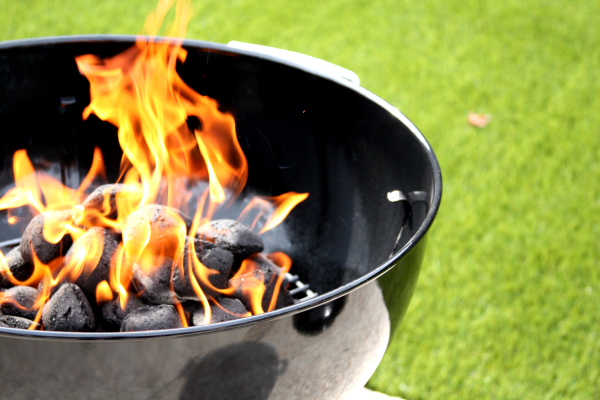
There are people who never cook. Only grill.
My dad is one of those people. He’s never thumbed through a cookbook, or spent hours planning out future meals. For my father, meals are to be eaten, not planned. He loves take out and the microwave. But hand the guy a plate full of steaks and an outdoor grill, and he’ll happily get to cooking dinner.
What is it about a barbecue that makes people forget their fear of cooking? Maybe it’s the lick of the flame, the smell of the smoke, or just the simple act of stepping outdoors (and away from the kitchen) that turns the whole act of cooking into something fun.
Whether you’re a grill-enthusiast or a BBQ master, cooking over fire or hot coals is freeing. All that’s needed to make a great meal on the barbecue is great product, the right fuel, and a touch of seasoning.
Granted, November isn’t the usual time to start a conversation about BBQ, but ever since Kingsford Charcoal sent me and a handful of bloggers to northern California to attend Kingsford University–a three-day grilling seminar with BBQ master Chris Lilly–I’ve been thinking about BBQ a lot. [Full disclosure: *Kingsford provided transportation to the event (in the form of airfare and travel vouchers), lodging (we stayed at Hotel Healdsburg), and nourishment (we ate at Pican Restaurant, catered lunches from Bakesale Betty, and had a wine dinner at Seghesio Winery in Healdsburg)]
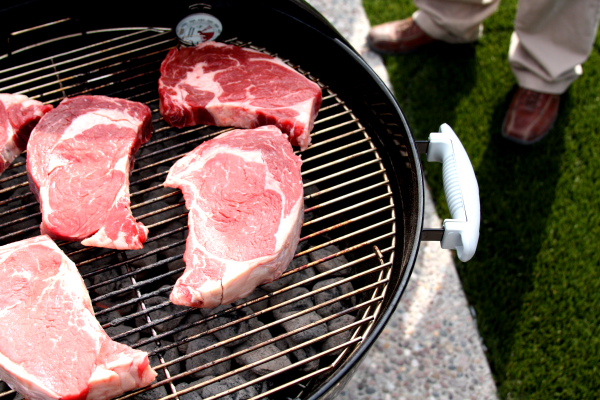
America’s favorite past time
Every day, BBQ enthusiasts fire up grills despite challenging locations, weather, and below zero temperatures. One friend, digs a path through several feet of snow every winter to grill at her backyard grill. Even someone like me—a person with no backyard or patio—keeps two portable grills (one gas and one charcoal) in a storage closet for cooking on the go. Or in my case, in the drive-way or sidewalk.
Step up to the BBQ at a family gathering and you will immediately recognize the camaraderie a smoking grill can create. Go to a party with a backyard grill and–regardless of the weather–guests will congregate around the open flames. Witness the tailgate barbecue—complete with a gourmet spread, tables, and a flat screen TV powered by a generator—and it’s hard to deny the power of the grill.
As an apartment dweller, I have to admit that lacking a backyard or porch makes cooking outside a bit more of a chore. But when I commit to a recipe that calls for a grill, I break out my mini-Weber and enjoy the benefits of my efforts. I love the depth of flavor of a lightly charred steak, the joy of a juicy burger, or the smoky-sweetness of a nectarine fresh off the grill.
But what really keeps me from flaming up the grill every night? Besides the fact that I don’t want to force my neighbors to give up valuable parking space for the sake of my dinner, there are two issues that give me reason to avoid BBQ entirely.
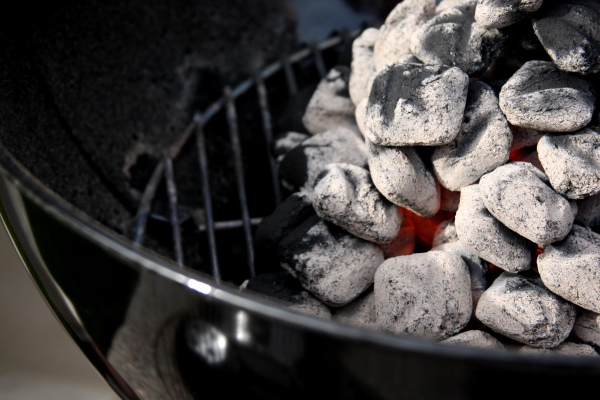
Reliable Fuel: Gas vs Charcoal
One thing I can always rely on when I want to spontaneously fire up the grill, is that I don’t have any a fuel. Call it the Murphy’s Law affect, or lack of forethought, but grilling is something that requires a little pre-planning. When I start to think about BBQ, I tack a trip to the hardware store onto my shopping and prep list.
Gas
When it comes to gas, there’s nothing easier. It’s a great source of heat for delicate foods that can easily be overwhelmed by smoke. It’s as easy as turning on a kitchen stove and the ignition process is fast. The grill, however, does require a good 10 minutes to heat up. Turns out I love the taste of BBQ so much, waiting for those ten minutes is like waiting for water to boil. It’s never fast enough. Final clean up for a gas grill includes brushing the grates.
Charcoal
Charcoal does require a little more work to fire up—opening up the bag, pouring in the briquettes, applying a light topical application of lighter fluid—but once they are lit, the heating time takes 15 to 20 minutes for the coals to reach cooking temperature. In addition to starting up the charcoal, steps like spreading the coals, and creating “heat zones” are all part of one’s grilling technique.
More than any other fuel source, cooking over charcoal definitely offers flavor component of smoke.
Final clean up, requires removing remaining ash and cleaning the grates. Though the process can be a little messy, left over ash (from 100% wood charcoal) can be used for composting.
Health Risks
According to David Schardt, a senior nutritionist at the Center for Science in the Public Interest, “There is an inexact risk about consuming meat that has been overly cooked.” There are, however, some real concerns about barbecuing over high heat. “When the food is charred or burned, it forms compounds that are potentially carcinogenic.” Though, it should be pointed out, that eating any burned food–whether it is from a grill or a frying pan–can be potentially carcinogenic.
Research has shown that barbecuing at high heat for long periods of time does create cancer-causing compounds called polycyclicaromatic hydrocarbons (PAHs). PAHs are created when bits of food become charred, and dripping juices hit a high-heat source. In addition to PAHs, another carcinogen called heterocyclic aromatic amines (HAA) are formed when grilling or broiling meats indoors.
How much charred meat one would have to consume before it becomes a concern is uncertain. To reduce risk, raise the grill rack to minimize direct heat contact with the cooking meat, and wait until the coals burn down.
“The issue is burning meat rather than grilling it,” says Sherry Bale, a spokeswoman for Weber-Stephen Products Co. “Burned barbecue is bad barbecue.” Also, the “low and slow” style of barbecue reduces risk of exposure to PAHs. Marinating, particularly in citrus or vinegar-based liquids, can reduce HAAs by as much as 96 percent.
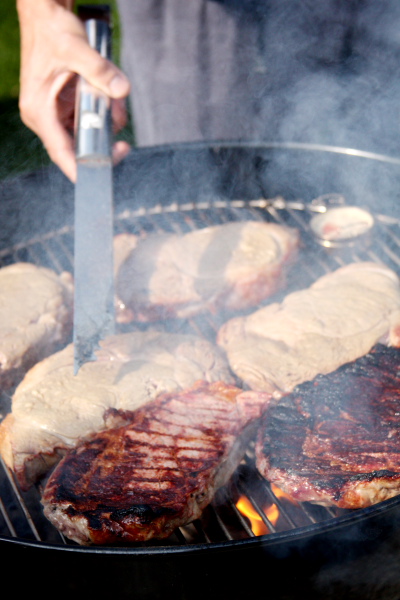
What is Charcoal anyway?
I remember asking once when I was a kid what charcoal was. I recall being told it was a fabricated brick of chemicals–which made me wary of the popular black bricks. Truth is, charcoal is charred wood. Take that same blackened hardwood, add some coal, and binding/igniting agents like limestone, cornstarch, and sodium nitrate, and you’ll have a charcoal briquette. For the enthusiastic research and design people of Kingsford, charcoal briquettes are more than just a heat source; they’re a product that requires constant testing and engineering.
According to one of Kingsford’s lead engineers, the company’s newest briquette offers more fuel efficiency and less environmental waste. They use less coal and more wood, thereby reducing carbon dioxide emissions and ash. Kingsford’s newest re-design of their classic product has a more efficient burn time, sustains heat for longer period, and reduces green house gas emissions. Kingsford also claims that charcoal has a lower life cycle on man-made greenhouse gas emissions than propane, gas, and electricity.
Cooking Great BBQ
After two full days of learning the art of the grill with Chris Lilly, I think I’ll be spending a lot more time with my mini Weber’s. With my family’s history of cancer, I’ll be a little more careful with just how often I’ll be grilling and limit myself to just a few charred steaks a year. But one thing I will most certainly be cooking soon, is some of Chris Lilly’s “low and slow” recipes from his new cookbook, Big Bob Gibson’s BBQ Book.
Click here for a simplified Chris Lilly “low and slow” Apple-Glazed Barbecued Baby Back Ribs recipe.
For anyone interested in behind the scenes photos of Kingsford University, be sure to check out White On Rice’s “Daily Crack” photo album or Jen Yu of Use Real Butter’s photo gallery.
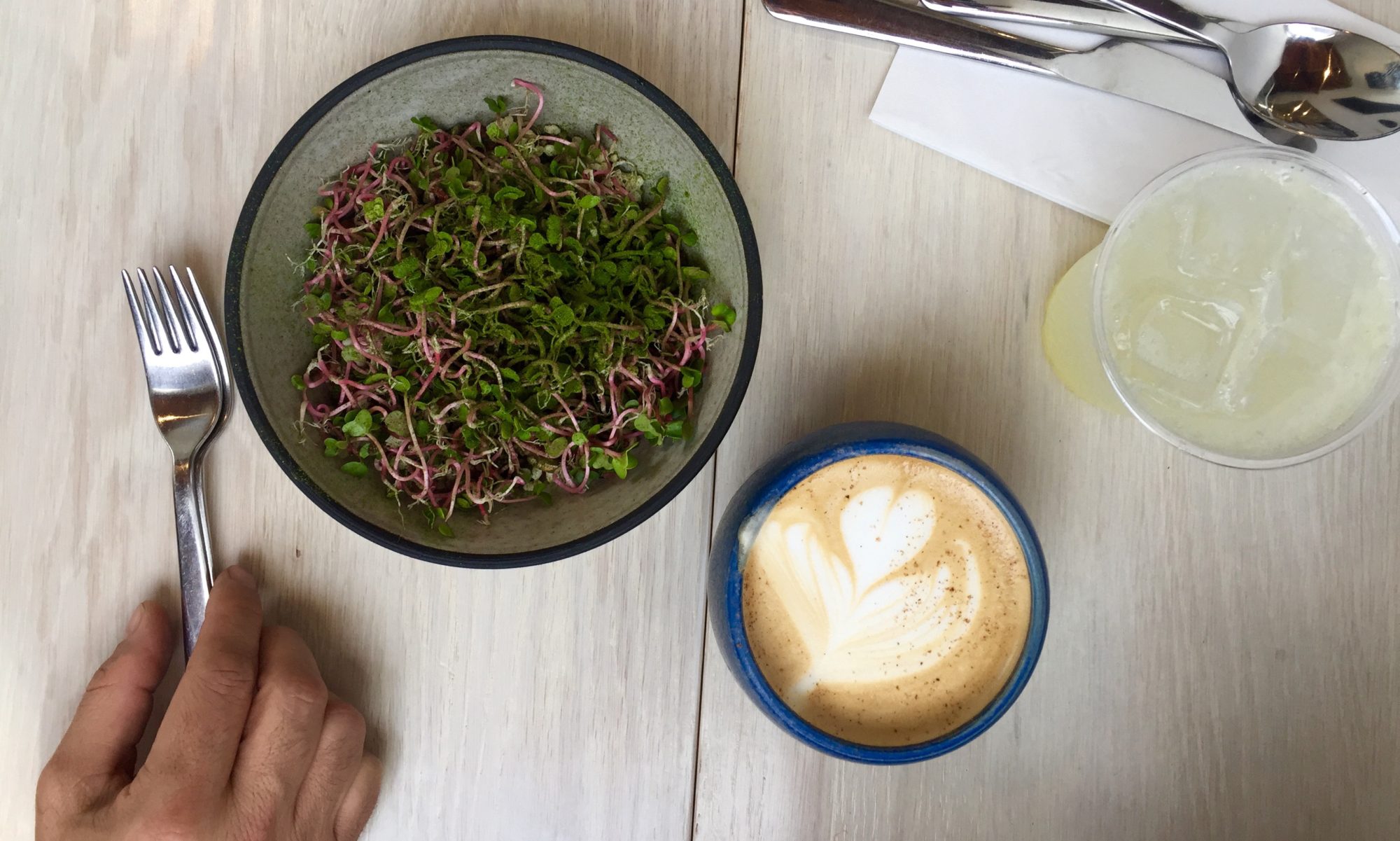
There are some risks I won’t take — texting while driving, free-climbing, hiking alone in Afghanistan. Grilling, though, is a risk I’m willing to run, PAHs be damned.
Another advantage of charcoal over gas — when your grilling is done, pop on a couple of peppers or an eggplant to roast in the residual heat.
Great post, Brooke. I think you discussed the pros and cons of barbecuing well, and it just leads me back to thinking about managing risk. If everything in life has the potential to harm, shouldn’t it at least taste good?
I’m with Tamar—I’ll take the risk of grilling any day! Thanks for the such an in-depth analysis.
Please subscribe my email address to your mailing list. Thanks!